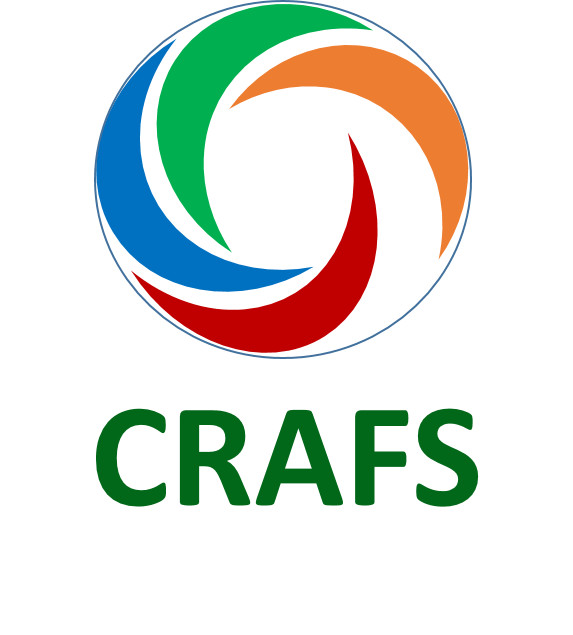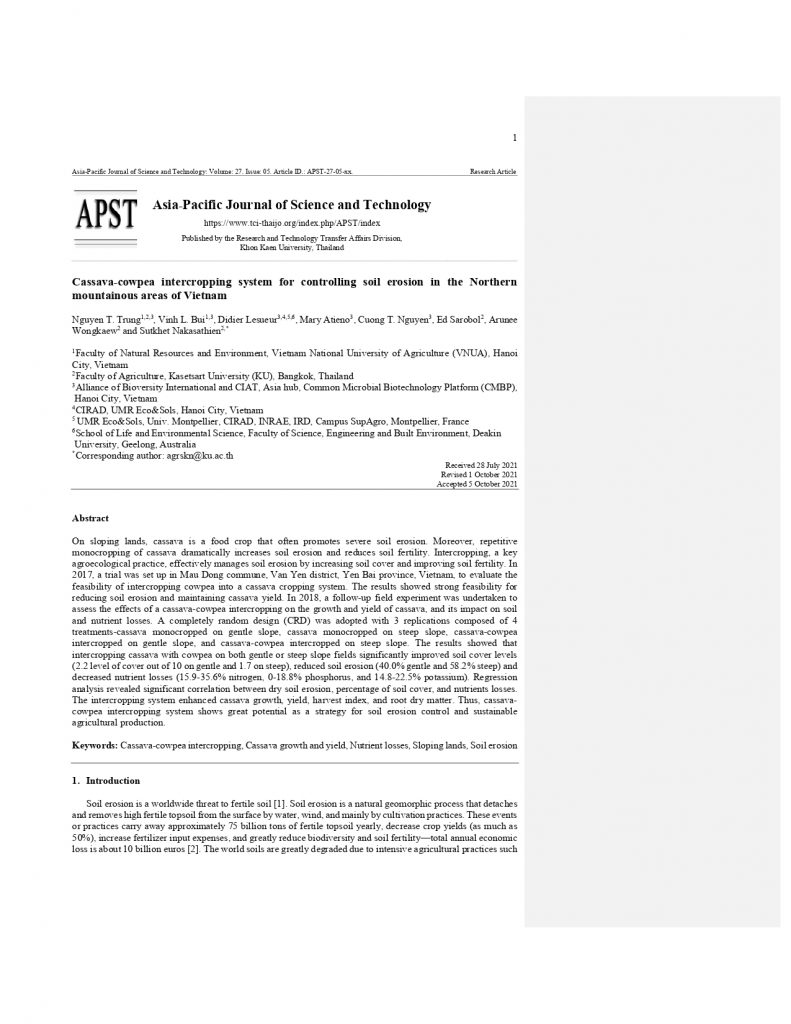View/
Journal Article
Authors
Nguyen T. Trung,
Vinh L. Bui,
Didier Lesueur,
Mary Atieno,
Cuong T. Nguyen,
Ed Sarobol,
Arunee Wongkaew,
Sutkhet Nakasathien.
Citation
Trung Thanh Nguyen, Vinh Le Bui, Didier Lesueur, Mary Atieno, Cuong Tuan Nguyen, Ed Sarobol, Arunee Wongkaew, Sutkhet Nakasathien. Enhancing soil erosion management and economic returns of smallholders by intercropping legumes with cassava in Northern mountainous areas of Vietnam. https://drive.google.com/file/d/1tizhafz4kTzeXN9qgNcAf81byvMnRS9C/view
Permanent link to share this item: http://crafs.vnua.edu.vn/en/news/handle-156/
*Corresponding author: agrskn@ku.ac.th
Abstract
On sloping lands, cassava is a food crop that often promotes severe soil erosion. Moreover, repetitive monocropping of cassava dramatically increases soil erosion and reduces soil fertility. Intercropping, a key agroecological practice, effectively manages soil erosion by increasing soil cover and improving soil fertility. In 2017, a trial was set up in Mau Dong commune, Van Yen district, Yen Bai province, Vietnam, to evaluate the feasibility of intercropping cowpea into a cassava cropping system. The results showed strong feasibility for reducing soil erosion and maintaining cassava yield. In 2018, a follow-up field experiment was undertaken to assess the effects of a cassava-cowpea intercropping on the growth and yield of cassava, and its impact on soil and nutrient losses. A completely random design (CRD) was adopted with 3 replications composed of 4 treatments-cassava monocropped on gentle slope, cassava monocropped on steep slope, cassava-cowpea intercropped on gentle slope, and cassava-cowpea intercropped on steep slope. The results showed that intercropping cassava with cowpea on both gentle or steep slope fields significantly improved soil cover levels (2.2 level of cover out of 10 on gentle and 1.7 on steep), reduced soil erosion (40.0% gentle and 58.2% steep) and decreased nutrient losses (15.9-35.6% nitrogen, 0-18.8% phosphorus, and 14.8-22.5% potassium). Regression analysis revealed significant correlation between dry soil erosion, percentage of soil cover, and nutrients losses. The intercropping system enhanced cassava growth, yield, harvest index, and root dry matter. Thus, cassava-cowpea intercropping system shows great potential as a strategy for soil erosion control and sustainable agricultural production.
Keywords: Cassava-cowpea intercropping, Cassava growth and yield, Nutrient losses, Sloping lands, Soil erosion

 Tiếng Việt
Tiếng Việt
